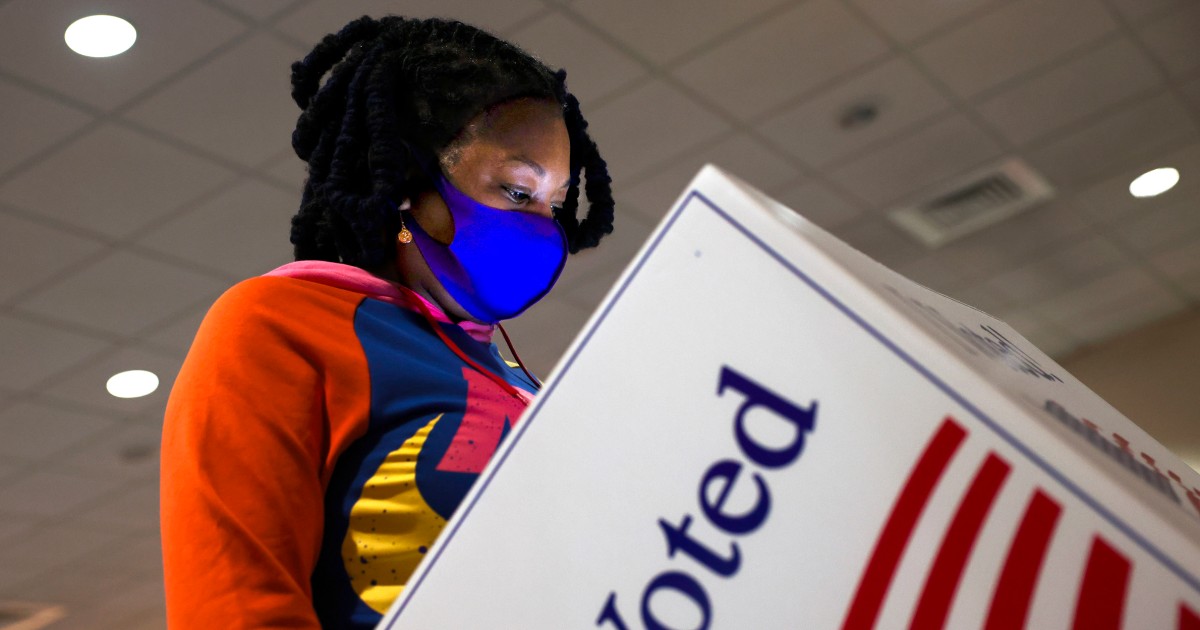
WASHINGTON — The Supreme Court on Wednesday will consider whether Republicans in South Carolina inappropriately considered race when drawing a previously closely contested congressional district in a way that removed thousands of Black voters.
Republicans led by South Carolina Senate President Thomas Alexander are contesting a January ruling that said that race was of predominant concern when drawing one of the seven districts.
The district, which includes the city and county of Charleston, is represented by Rep. Nancy Mace, a Republican.
After the 2020 census, Republicans redrew the boundaries to strengthen GOP control of what had become a competitive district.
With Black voters tending to vote for Democrats, the case raises the question of whether Republicans were primarily targeting them for racial or partisan reasons.
Taiwan Scott, one of the plaintiffs, said on a call with reporters that it was important for Black people to know that their member of Congress is attentive to their specific needs.
“We need that representation. We need to be counted. We need to have our voices heard,” he added.
Democrat Joe Cunningham won the seat in 2018 and narrowly lost to Mace in 2020. The new map was used in the 2022 midterm elections, in which Mace won by a wider margin than she had two years previously.
The roughly 30,000 Black voters who were moved out of the district were placed into the district held by Rep. Jim Clyburn, D-S.C., who is Black. It is the only one of seven congressional districts in the state held by Democrats.
Although the plaintiffs won in the lower courts, a revised map has not been drawn, with the litigation on hold until the Supreme Court issues its ruling. Both sides have asked the justices to rule by Jan. 1 so that, if required, a new map can be put in place for the 2024 elections.
A win for the plaintiffs would likely make the district more competitive but would not necessarily mean that a Democrat would win.
Lawyers for the Republican legislators said in court papers that the three-judge panel should have acted on the presumption that the Legislature was acting in good faith. They also said there were obvious political reasons that legislators wanted to move predominantly Democratic voters out of the district to cement a Republican majority.
They pointed to the fact that the Supreme Court in 2019 effectively gave the green light to so-called partisan gerrymandering when it said federal courts have no role in assessing such claims.
Civil rights groups, including the NAACP Legal Defense and Educational Fund, alleged that Republicans not only unlawfully considered race when drawing the maps, but they also diluted the power of Black voters in doing so.
The claims were brought under the Constitution’s 14th Amendment, which requires that the law applies equally to everyone. As such, although it is a racial gerrymandering claim, it arises under a different legal theory to the major ruling earlier this year in which civil rights advocates successfully challenged Republican-drawn maps in Alabama under the Voting Rights Act.
That case featured mirror-image legal arguments, with Alabama Republicans arguing that the state should have been allowed to use race-neutral line-drawing principles even if that meant there was only one Black-majority district, instead of two. The plaintiffs meanwhile, unlike in the South Carolina case, argued that race was required to be a consideration under the Voting Rights Act.
Source: | This article originally belongs to Nbcnews.com










